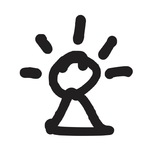| 3,7-dimethylpurine-2,6-dione; 3,7-dimethylxanthine; theobromine | |
| Links: | 📖 PubMed, 📖Org. Chem., v. Richter, 1. Vol (Theobromine); p. 588, 589, 590, |
| MeSH: | Anti-Asthmatic Agents; Autonomic Agents; Bronchodilator Agents |
| CAS RN: | [83-67-0] |
| Formula: | C7H8N4O2; 180.17 g/mol |
| InChiKey: | YAPQBXQYLJRXSA-UHFFFAOYSA-N |
| SMILES: | Cn1cnc2N(C)C(=O)NC(=O)c12 |
| Pharmaceutical use: | diuretic; stimulant; vasodilator |
| Toxicology (LD50): | 190 mg/Kg (cat, or); 1 250 mg/Kg(rabbit, sc); 900 mg/Kg(rat, sc) |
| Density: | 1.500 g/mL |
| Molar volume: | 120.1 mL/mol |
| Melting point: | 348 °C |
| Log10 partition octanol / water: | -0.78 |
| 1g dissolves in: 3,125.00g diethyl ether; 3,278.69g water; 4,761.90g tetrachloromethane; 12,500.00g trichloroethene | |
